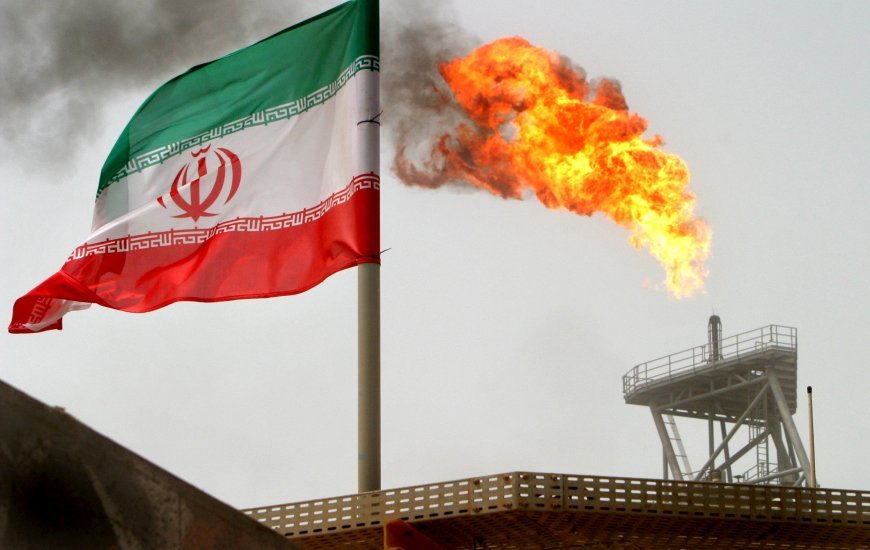What is the main reason why Iran's oil is cheaper than others
Iran, a country rich in natural resources, particularly oil and gas, is known for having some of the lowest petrol prices in the world. This phenomenon is the result of a combination of historical, economic, and political factors. Understanding why petrol is so cheap in Iran involves exploring the nation's vast oil reserves, government policies, economic strategies, and the broader geopolitical context.
Why Petrol Prices are So Low in Iran: An In-Depth Analysis
Iran, a country rich in natural resources, particularly oil and gas, is known for having some of the lowest petrol prices in the world. This phenomenon is the result of a combination of historical, economic, and political factors. Understanding why petrol is so cheap in Iran involves exploring the nation's vast oil reserves, government policies, economic strategies, and the broader geopolitical context.
Abundance of Oil Reserves
Iran possesses one of the largest proven oil reserves globally, estimated to be around 155 billion barrels, which places it among the top countries in terms of oil wealth. This abundance of crude oil naturally leads to lower production costs, as the country can extract and refine oil domestically without relying heavily on imports. The availability of these substantial reserves ensures a steady and ample supply of petrol, contributing to its low price.
Government Subsidies
A significant reason for the low petrol prices in Iran is the substantial subsidies provided by the government. These subsidies are a part of broader social welfare policies aimed at ensuring affordability for essential commodities, including fuel. The Iranian government spends billions of dollars annually to keep petrol prices low for its citizens, a practice that has deep roots in the country's socio-economic policy framework.
The rationale behind these subsidies is twofold: firstly, to support the domestic economy by reducing transportation and production costs, thereby controlling inflation; and secondly, to provide a form of economic relief to the population, especially during periods of economic hardship. Subsidies help maintain public support for the government, which is crucial in a country where political stability is a continuous concern.
Economic Strategy and Domestic Consumption
Iran's economy is heavily reliant on its oil and gas sector, which accounts for a significant portion of its GDP and export revenues. By keeping petrol prices low, the government aims to stimulate domestic consumption and industrial activity. Cheap fuel reduces operational costs for businesses, transportation, and agriculture, thus fostering economic growth and development.
Moreover, low petrol prices are intended to encourage domestic consumption over export, a strategy to ensure energy security and self-sufficiency. In times of international sanctions and economic isolation, promoting domestic use of petrol helps insulate the economy from external shocks and maintain a degree of economic stability.
Geopolitical Context
The geopolitical landscape also plays a crucial role in the pricing of petrol in Iran. The country has faced numerous international sanctions, particularly from Western nations, aimed at curbing its nuclear programme and influencing its foreign policy. These sanctions have limited Iran's ability to export oil at market prices, leading to a surplus of crude oil within the country. To manage this surplus and mitigate the economic impact of reduced export revenues, the government maintains low petrol prices to encourage domestic consumption.
Furthermore, maintaining low petrol prices can be seen as a means of mitigating the economic impact of sanctions on the Iranian population. By ensuring affordable energy, the government attempts to shield its citizens from the harsher economic consequences of international isolation, thereby preserving social stability and public support.
Inflation and Currency Devaluation
Inflation and currency devaluation have also influenced petrol prices in Iran. The Iranian rial has depreciated significantly over the years, reducing the real cost of petrol when priced in local currency. While this depreciation negatively affects the overall economy, it inadvertently contributes to keeping domestic petrol prices low, as the government can leverage its oil wealth to cushion the impact of inflation on fuel prices.
Environmental and Social Implications
While low petrol prices in Iran have economic benefits, they also come with environmental and social implications. Cheap fuel leads to higher consumption and, consequently, increased greenhouse gas emissions and air pollution. Iran's major cities, including Tehran, often struggle with severe air quality issues, exacerbated by the high usage of petrol.
Socially, the subsidies that keep petrol prices low represent a significant financial burden on the state budget. These funds could potentially be redirected towards other critical sectors such as healthcare, education, and infrastructure development. The challenge for Iran is to balance the economic and social benefits of low petrol prices with the need for sustainable development and environmental protection.
Conclusion
The low petrol prices in Iran are a result of its vast oil reserves, substantial government subsidies, economic strategies aimed at fostering domestic consumption, and the broader geopolitical context. While these low prices provide economic relief and support domestic industries, they also pose significant challenges, including environmental degradation and fiscal pressures on the government. As Iran navigates its complex economic and political landscape, it will need to address these challenges to ensure sustainable development and long-term economic stability.
What's Your Reaction?








